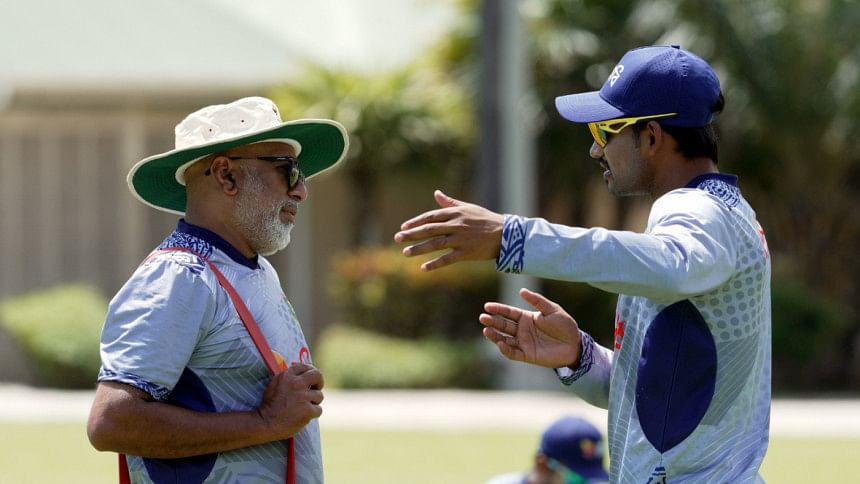A strategic mishap by Tigers

Bangladesh team management made a few strategic mistakes in their 50-run defeat to India in a crucial Super Eight clash of the T20 World Cup in Antigua on Saturday. It leaves question marks over the Tigers' planning around the biggest matches on the biggest stages.
It is not regular for Bangladesh to make the Super Eight of a T20 World Cup.
If the bowlers had carried them to the Super Eight stage, the batters failed to live up to international standards throughout the tournament -- especially in the two Super Eight matches against Australia and India.
The head coach had talked about playing with freedom, given that they had already achieved their target of making the Super Eights. But ace all-rounder Shakib Al Hasan was of the opinion that the said freedom could never kick in as the batters' willow rarely did the talking.
"Obviously, we have a shortage of runs as a batting unit. So, the freedom we needed, the confidence we needed, I don't think it was there," Shakib said at the press conference after the game against India.
What has the coaching staff done to improve batting efforts?
Nic Pothas had previously handled the Tigers' batting unit before David Hemp took over the responsibility. It is, however, clear that batting has decayed in recent times and has not been helped by the surfaces at home. Even though those surfaces had been prepared as per the team management's wishes, Bangladesh batters have fared well neither on sporting tracks, like the one in Antigua, nor on the more difficult and slower tracks in this World Cup.
In fact, when push came to shove, they dropped one pacer, Taskin Ahmed, from the lineup to make room for an extra batter -- wicket-keeper batter Jaker Ali. Taskin has been able to set the aggression of the bowling unit on various surfaces recently but the advantage that the management felt could be availed by making this change, was not evident. The extra batter did not mean Bangladesh went for the game head-on, evident from yet another meek Powerplay effort while in chase of a 197-run target.
If attack and freedom to attack were what Bangladesh went for, strategically, they barred themselves from going on the attack with their strongest department which is their bowling. Instead, they stacked the lineup with the underperforming batters against India.
The Tigers' think tank also read the pitch wrong and it led to massive ineffectiveness in their bowling effort. Questions were raised as to why Bangladesh opened with spinners from both ends against two of the best players of spin like Rohit Sharma and Virat Kohli.
Understandably, Shakib did not take responsibility for the decision to bowl first and also use spinners so extensively in the Powerplay, mentioning that it is "the coach and captain's decision." However, Shakib did mention that the team management's decision could be based on their perception of playing on a slower surface.
After Afghanistan's historic win over Australia yesterday -- which kept the Tigers afloat in the mega event -- their skipper Rashid Khan outlined that their coaching staff are often reminding them of specific plans discussed in team meetings. Bangladesh, on the other hand, looked desolate, without a particular strategy they could exploit.

 For all latest news, follow The Daily Star's Google News channel.
For all latest news, follow The Daily Star's Google News channel. 








Comments